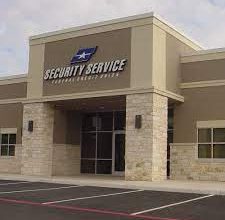If you’re a small business owner looking for advice on buying a car or group of cars for you or your staff, there are various options you may take into account before deciding how to bring company autos to your business. For instance, which is better for your business needs and financial capacity, buying or leasing a car? If you’re a small business owner, you’ll also need to decide if buying a business car will meet your personal car needs. Of course, a business car will definitely serve personal purposes every now and then. Anyway, if your business does a lot of moving around, then you should consider buying a car, as, in the long run, it will definitely serve. Additionally, you can write off some of the cost of buying your business car as tax deductions.
Buying a Car For Business
The acquisition of a vehicle for business use is one adjustment that could help you streamline your operations and improve your prospects for growth. Whether you wish to provide mobile business services or want a means of transportation between locations, owning a business automobile can help you save money and streamline your working day. In order to help you choose the ideal company car for your small business, we’ve put up a list of tips.
Before choosing to purchase a company car, learn about the following suggestions to make sure you get the best benefits for your business.
#1. Establish your company’s financial capabilities
No matter how long you have had a business or how recently you started, you should never spend money on anything you cannot afford. Check your accounts to be sure your business has the money available for spending before you make a purchase or take out a loan for a car. Don’t forget to include expenses like gas, insurance, maintenance, and even interest if you plan to use financing.
#2. Purchase the car from your business
If you plan to use the car exclusively for work, buying it through your company will give you the biggest tax benefits. Common motor expenses like maintenance, gas, oil changes and tires can all be deducted by businesses. Businesses can deduct expenses that private car owners cannot, such as car loan interest and depreciation.
#3. Based on your needs, choose a model
When purchasing a business vehicle, you should consider what kind of vehicle best meets your needs. Popular commuter vehicles are terrific for moving around fast and effectively, but if your business will utilize the vehicle for deliveries, you may require additional cargo space.
#4. List the most important automobile features
In addition to being the proper model, your work vehicle should offer the facilities you and your coworkers require to perform your tasks. Whatever features your business need, be sure to place a higher priority on those that will help you achieve your goals than on any extras that would be nice to have.
#5. Think about buying old
For small businesses, buying a new car isn’t always the most cost-effective option. If your firm values function over form, buying a used car could help you save money on both the up-front costs and depreciation. Older vehicles do present certain risks as they are more likely to need repairs, so it is best to have a trustworthy mechanic inspect the vehicle before you buy it.
#6. Consider leasing
Another way to afford a company automobile is to lease a car. If you own a micro business and can’t afford additional overhead costs, getting a high-interest auto loan might not be the best line of action. With a lease, you can benefit from owning a business car without having to pay a large down payment upfront. Additionally, leasing provides you access to newer vehicle options, and a set monthly cost, and the leasing company will take care of any necessary maintenance or repairs.
#7. Take fuel economy into account
Having a work vehicle is a great tool for your business, but fuel expenses can add up quickly. If you plan to travel a lot for work, think about getting a car with good gas mileage. Your savings on your corporate car will increase because some electric or plug-in hybrid vehicles with reduced fuel costs may also be eligible for tax benefits.
#8. Consider your brand
Since your company automobile will serve as an extension of your business, you should pick a model that fits your brand. Think about whether your car has to stand out from the competitors or please your customers. Aesthetics may not be a high consideration in every area.
#9. Consider your company’s tax deductions
Owning a company vehicle has a number of financial benefits, but before making a purchase, it’s vital to find out which tax deductions you’re actually eligible for.
#10. Strike a good deal via haggling
Negotiating the price can help you get the most value for your money, just like if you were buying a car for your own use. Utilize an internet appraisal tool to determine the fair market value of your desired business vehicle, then use that knowledge to barter for a better deal with the seller.
#11. Examine commercial auto insurance
Whether you drive a car that belongs to your business or one that you personally own and use for work, it is advised to get coverage under a commercial auto policy. These insurance policies are designed expressly to cover vehicles used for business purposes and provide protection against liability, physical damage, medical expenses, and coverage against uninsured drivers. Never overlook price comparison to acquire the greatest offers.
Buying a Car For Business and Personal Use
The best car brand and model for both personal and business use depends on a wide range of factors. When choosing the size of the vehicle, you must strike a balance. It shouldn’t be too big or too small in the end. Although buying a car for both personal and business use can seem difficult, it is straightforward. The following tips will be quite relevant when buying a car for both personal and business use;
#1. Make a budget
Your first goal should be establishing a budget for the car and figuring out whether you can afford to buy and maintain it. Think about how much you’re willing to shell out a year for repairs and fuel. If your business is profitable, buying a suitable car won’t be an issue. After acquiring it for the firm, you can include it in your business expenses.
#2. Choosing a Car to Represent Your Business
Choose a vehicle once you’ve established a budget for a vehicle for both professional and personal use. Your organization and the type of business you run often determine the type of car you can buy. For example, you might want a car that’s more inexpensive but that you’re not quite ready to flaunt or one that’s luxurious enough to wow your high-end clients.
Be careful to choose a vehicle that makes sense and enhances the reputation of your company. For instance, purchasing a menacing-looking truck makes perfect sense if you work in construction. If you work in real estate, an SUV will do just fine.
#3. Determining the Size of the Car
Even if you may long for a German car with a flawless appearance, there comes a time when the vehicle must do more than just impress your customers. For instance, it ought to have ample room for a large number of passengers as well as cargo. You should all be able to squeeze in the car without feeling crowded when there are five of you leaving the office to see a client.
Determine how many passengers you’ll need by taking into account the journeys you’re likely to make in the car. Perhaps you require an SUV or minivan with seven seats. Or perhaps a small, five-seat vehicle would be helpful. If you carefully consider your personal and professional needs, you’ll locate the perfect car.
#4. Considering the Necessary Add-Ons
It is also important to consider the optional addition, which may be advantageous and beneficial in a variety of ways. Their inclusion in the package also contributes to raising the vehicle’s safety standards and lowering depreciation. If you routinely travel long miles across the country, consider purchasing a vehicle with satellite navigation. A local company is not required to have a GPS in any other circumstance. This is because you’ll be operating it independently in settings you’re familiar with.
#5. Matching the Vehicle to Your Brand
An organization’s car should appear attractive because it represents the company. The more people use and see the vehicle, the more positively they will perceive your business. In the end, you’ll be able to impress and convert a substantial number of customers. If you have different ideas about how your brand should be represented, buy a car that blends in with the crowd. There is, however, no likelihood that prospective clients will be made aware of your business.
#6. Competition as a Comparison
As part of your strategy to compete with other businesses, you need an equally unique distinguishing vehicle. How would you feel if your competition possessed strong machines and you were confined in an ancient car? You should be careful not to overpay on the purchase and maintenance of a high-end vehicle to promote your company. However, you are not required to acknowledge that you are inferior to your competitors.
#7. Analyzing the Vehicle’s Functionality
A company vehicle should, as was previously mentioned, serve a certain purpose, and you should work toward that. Ensure that the car you choose perfectly satisfies your needs and requirements. You’ll likely get a number of offers at bargain prices. While that’s fantastic, the most crucial factor to take into account is whether the car you purchase can perform the task for which you need it. A minivan will do if all you need is a nine-to-five shuttle. Invest in a five-seat sports car if you want a vehicle for both work and recreation.
#8. Prioritizing Fuel Efficiency
It’s not necessary for a car to be a gas guzzler just because it’s used for business. If you choose a car that uses a lot of gas, you’ll wind up paying more than you should for gas.
#9. Obtaining Commercial Auto Insurance
Once you’ve bought a car for both personal and business use, make sure it’s insured. Instead of choosing a standard policy, which is excellent for a personal vehicle, choose a plan that provides the protection your automobile needs. You are tempted to select the less expensive option because insurance for businesses typically costs more than insurance for individuals.
Leasing or Buying a Car For Business
The first stage in this process is deciding whether you’ll be leasing or buying a car for business purposes. The main difference between the two is that buying a car offers the business full ownership, allowing customization and unlimited mileage, whereas leasing a car restricts your freedom of use. However, leasing is better than buying a car for your business in the short term because it results in lower payments every month. Here are some considerations you should make when determining whether to buy or lease a business vehicle to help you make that choice.
#1. Payments
Initial costs for both buying and leasing a car for your business may have an impact on your choice. Your financial flow may be immediately impacted by a significant down payment on a car. But a security deposit is frequently required when renting a car, and it’s usually rounded up to the amount of one month’s payment.
Purchasing a car chews up short-term cash flow and could restrict your ability to take out more loans for the organization. But over time, this turns into value because you have a solid asset on your balance sheet. While leasing a car with lower monthly payments can immediately enhance your cash flow. Due to lower payments, you can drive a modern car that would otherwise be out of your price range.
#2. Maintenance
Regular maintenance inspections and repairs are necessary to keep your asset in good working order. However, how you handle maintenance depends on whether you lease or buy.
The maintenance, repairs, and occasionally even free oil changes that come with the vehicles depend on the lease. This can help reduce the stress associated with car upkeep. The lease also covers normal wear and tear, however, any extraordinary wear and tear will be charged for. Once a car is purchased, the owner assumes full responsibility for the debt. You are liable for the cost of scheduling and repairs even when severe wear and tear is unimportant.
#3. Customization
Buying a business car offers more branding or customization personalization than leasing. Some small firms may choose to use vehicle marketing by affixing logo decals and stickers to their vehicles. You are allowed to make any changes you want to a car once you buy it.
A leased car must be returned in nearly showroom condition, with the exception of reasonable wear and tear. These vehicles cannot be customized without incurring expensive fees.
#4. Mileage
When deciding whether to buy or lease an automobile for a small business, it’s critical to be crystal clear about the intended use of the vehicle. Knowing this will help you figure out how many miles you want to travel annually.
The number of miles you can drive the car is restricted by a mileage quota stated in the lease agreement. When you go above the allotted amount, you must start paying mileage fees, which quickly add up. The cost for each additional mile could range from 10 cents to 50 cents. Similar to this, considering mileage can ultimately lead to a more affordable car purchase. Since you are the owner, you have complete control over the car and are not subject to any mileage or driving limits.
Buying a Car For Business Tax Deduction
Business owners who use their own automobiles for work-related reasons are eligible for tax benefits. To understand the complexities surrounding the automotive tax deduction, use the following five steps:
#1. Determine whether the car is used for business.
Determine a percentage based on the mileage of your car for both private and business use. The IRS counts commuter miles as personal miles. Utilizing a mileage tracking app like Freshbooks Mobile or recording mileage in a spreadsheet by snapping pictures of your odometer before and after work trips are the two easiest ways to keep track of mileage throughout the year.
#2. Determining the standard mileage deduction is necessary
The computation for standard mileage deductions is:
Standard Mileage Deduction = (Business mileage ✕ IRS standard mileage rate) + Non-Commuting Parking + Tolls
#3. Utilize the actual expense technique to determine the deduction.
Next, add up all of the actual expenses related to your car for the full year. Add these expenses:
- Gas
- Oil
- Repairs
- Tires
- Insurance
- cost of registration, etc.
A word on lease payments and depreciation Depreciation should be subtracted from the price of any vehicles you buy or rent. Depreciation can be written off when financing an automobile using a loan.
#4. Select the plan that results in the largest deduction.
If the numbers are close and you’re unsure which method to use, pick the usual mileage rate. You cannot switch to the mileage rate once you begin using the true expense method. Those who drive their own vehicles, however, have the choice to change from the standard mileage rate to the real expense method at any time.
#5. Use Schedule C of Form 1040 to claim the car tax deduction
Use the steps shown below to enter the method you chose for your car’s business costs. Business owners deduct their car tax on Schedule C.
Buying a Car For Business Tax Write Off
Before we talk about buying a car for business and tax write off, let’s talk about the question that probe my mind. Is it possible to write off tax when buying a business car? Yes, it is, however, not entirely. Business owners are allowed to write off certain amounts of their expense but not all. If you’re buying a car solely for business purposes, you may be eligible for Capital Cost Allowance (CCA), which allows you to write off the tax certain part or deduct the cost of the car . This is primary because it’s a business depreciating asset.
We’ll go through the top five tax write off or deductions for new business owners today, regardless of your field of employment and, it relate to others things asdide buying a car.
#1. Organizational and Starting Costs
As a new business owner, you must cover startup expenditures and organizational expenses to get your operation up and running. The IRS allows you to deduct up to $5,000 in startup costs in the first year of operation, so you must keep track of these deductions even if your business hasn’t yet earned any revenue. The extra money may be written off over the course of 180 months if you spend more than $5,000 on your business in the first year because it is regarded as amortized expenses. Because of this, you can only deduct $5,000 in expenses rather than all of your costs up until the point when your organization is considered to be “functioning.” You must make sure that you are tracking all startup and organizational costs as a result.
#2. Equipment Costs
As a business owner, you have the choice to write off your laptop and other equipment. The majority of new business owners spend a large sum of money shopping on Amazon or at other stores for the supplies and equipment they need to launch their enterprises. As long as those charges are categorized as business equipment costs rather than personal expenses, you are eligible to deduct them from your taxes. It was important to me when I first started my business that any expenses I made that qualified may be deducted by the organization.
#3. Business Meals
You can deduct all of your meals in 2021 as long as they were taken in connection with your job. New legislation requires that your business-related meals are now fully deductible if you’re a business owner and decide to conduct business there or if you order food. This is due to the Tax Relief Bill, which was put into effect by both the Trump and Biden administrations. This means that as long as the meals are connected to your efforts to make money, you may write them off. In your meal tracking system, be careful to note what each meal you consume for work is intended to accomplish.
#4. Place Your Children On Payroll
When your business is successful and your children are capable of handling ordinary and crucial tasks for it, it is a great idea to grow money for them tax-free. Many taxpayers are unclear of how to develop tax-free money for their children while using a business, even though many of us are aware of the benefits of owning a Roth IRA and that children are qualified for one. When you decide to add your kids to the payroll, there are no payroll taxes owed on the amounts. Without your child having to file a tax return, you can pay them up to the standard deduction, which is $12,400. As a business owner, you can now add your child to the payroll and receive a $12,400 deduction without having to file a tax return or pay payroll taxes. Additionally, we can set up a Roth IRA for your children, enroll them in payroll, and use payroll deductions to fund the Roth IRA on the back end. Your children can do this to increase their market value without paying any taxes.
#5. Your Automobile
If you use your automobile for work, it’s important to understand how to take a car deduction and how to properly depreciate your car. There are two ways to write off a car: depreciation (for instance, taking the car’s initial price and writing it off over five years) or mileage. The mileage is helpful if you drive frequently because there is a certain amount, 57.5 cents, that you can deduct per mile of a business-related trip.
Is it worth buying a car through my business?
The most important financial benefit of buying a car through your business is the decrease in your tax burden.
Can I write off a car purchase for business?
You can use the IRS Section 179 deduction to write off a portion of the purchase price of a vehicle if you plan to use it for business purposes.
How do I buy a car as a business owner?
Give your lender the cash flow figures and at least two years’ worth of business tax returns. For a loan, you must have a positive cash flow. Your lender can also request a business plan that explains why you’re buying the car, depending on the loan’s size.
What are the benefits of purchasing a car through your LLC?
Buying a car under your LLC’s name entitles you to a number of fantastic benefits.
- Privacy
- Liability protection
- taxes deductible
How does buying a car save tax?
Buying an automobile for personal or corporate use may provide tax-deductible benefits. The IRS only permits taxpayers to write off one of local and state income taxes or local and state sales taxes.
Can I transfer my car loan to my business?
Yes is the correct response. Once the financing has been granted, you must get the proper auto insurance and speak with the DMV to transfer the business’s title.
1. Buying a Car For Business
2. Buying a Car For Business and Personal Use
3. Leasing or Buying a Car For Business
4. Buying a Car For Business Tax Deduction
5. Buying a Car For Business Tax Write Off
Conclusion
You should consider buying a car for your business if you do a lot of moving around. You’ll get a write off the expense with corporate tax deduction over time. Getting a good car will also save expenses in the long run.
Best Ways To Buying a Car For Business FAQs
What the best steps tp buying a car for bsuiness use?
- Check your business credit score
- Find car dealerships that specialize in commercial sales
- Research vehicles and features.
- Pick out your car
- Locate and test-drive the car.
- Check sale price and warranties.
- Review the deal and dealer financing.
- Provide your financial paperwork.
When is ideal to buy car for business?
If you frequently use a vehicle for business purposes, it makes sense to purchase a vehicle in your company’s name, especially if you already have credit in your company’s name.
- HOW TO CALCULATE MILEAGE: How to Calculate Reimbursement 2023
- LONG TERM RENTAL: What You Need to Know
- Business Expenses: List Of Business Expenses
- MORTGAGE INTEREST DEDUCTION: Can You Deduct Mortgage Interest?






